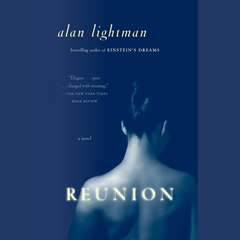 Play Audiobook Sample
Play Audiobook Sample
In Praise of Wasting Time Audiobook
 Play Audiobook Sample
Play Audiobook Sample
Quick Stats About this Audiobook
Total Audiobook Chapters:
Longest Chapter Length:
Shortest Chapter Length:
Average Chapter Length:
Audiobooks by this Author:
Publisher Description
In this timely and essential book that offers a fresh take on the qualms of modern day life, Professor Alan Lightman investigates the creativity born from allowing our minds to freely roam, without attempting to accomplish anything and without any assigned tasks.
We are all worried about wasting time. Especially in the West, we have created a frenzied lifestyle in which the twenty-four hours of each day are carved up, dissected, and reduced down to ten minute units of efficiency. We take our iPhones and laptops with us on vacation. We check email at restaurants or our brokerage accounts while walking in the park. When the school day ends, our children are overloaded with “extras.” Our university curricula are so crammed our young people don’t have time to reflect on the material they are supposed to be learning. Yet in the face of our time-driven existence, a great deal of evidence suggests there is great value in “wasting time,” of letting the mind lie fallow for some periods, of letting minutes and even hours go by without scheduled activities or intended tasks.
Gustav Mahler routinely took three or four-hour walks after lunch, stopping to jot down ideas in his notebook. Carl Jung did his most creative thinking and writing when he visited his country house. In his 1949 autobiography, Albert Einstein described how his thinking involved letting his mind roam over many possibilities and making connections between concepts that were previously unconnected. With In Praise of Wasting Time, Professor Alan Lightman documents the rush and heave of the modern world, suggests the technological and cultural origins of our time-driven lives, and examines the many values of “wasting time”—for replenishing the mind, for creative thought, and for finding and solidifying the inner self. Break free from the idea that we must not waste a single second, and discover how sometimes the best thing to do is to do nothing at all.
Download and start listening now!
“Our most important human capacities for creativity and our relationships to ourselves and others are under attack by our preoccupation with our devices. We need new practices to turn this around and reclaim our humanity. But here Lightman’s special achievement is to make this familiar story come alive with personal urgency and new clarity…It is good to hear a call to arms expressed so beautifully. Bravo.”
— Sherry Turkle, bestselling author and the Abby Rockefeller Mauzé Professor of the Social Studies of Science and Technology, MIT
Quotes
-
“Few present their arguments so cogently or more persuasively present the advantages of cultivating a contemplative habit of mind. A sober, companionable writer, the author rarely exaggerates, and his argument rings true: To unplug (now and then) is to prosper.”
— Kirkus Reviews
In Praise of Wasting Time Listener Reviews
Be the first to write a review about this audiobook!
About Alan Lightman
Alan Lightman is the author of several novels, including Einstein’s Dreams, a New York Times and international bestseller, and The Diagnosis, a finalist for the 2000 National Book Award. He is also the author of several collections of essays and numerous books on science. His work has appeared in the Atlantic, Granta, the New Yorker, the New York Review of Books, and Nature, among many other publications. A theoretical physicist as well as a writer, he has served on the faculties of Harvard and MIT, where he was the first person to receive a dual faculty appointment in science and the humanities.

















